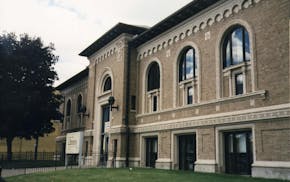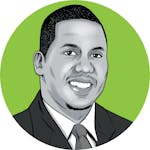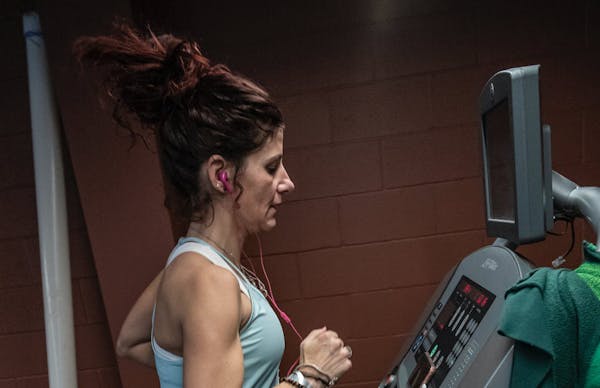On a trip home to Milwaukee for Thanksgiving, every exit to my childhood home was under construction.
"Drive down the road," my dad said when I asked for alternate routes, "and come back."
Whenever I'm home, I'm always in awe of the transformation of the city. New buildings, new roads, new stores. The bowling alley that was our hub in high school on Friday nights is a strip mall now. The big mall is a modern shopping hub with upscale stores.
I tried to show my daughters where I took driver's ed in high school, but the building is gone.
That nostalgia about my hometown is magnified because I followed the local news when I was a kid and paid attention to what the city was then, so I can appreciate now what it has become. I read through the Milwaukee Journal Sentinel on the weekends and watched the 6 o'clock news with my parents. I understood the world was much bigger — and smaller — than I assumed, as a result.
I'm not convinced my children's generation will see the value of the news the same way.
Sure, a newspaper columnist writing about rapidly shifting news habits is like a door-to-door vacuum salesman rebuking the Roomba. I get it. But my worry is related to a disconnected society and the impact of that reality on our collective empathy for one another.
First, it's important to establish that the media landscape is diversifying, not disappearing, despite the impact of that change on newspapers across the country.
According to the Pew Research Center website: "A large majority of U.S. adults (86%) say they often or sometimes get news from a smartphone, computer or tablet, including 56% who say they do so often. This is more than the 49% who said they often got news from digital devices in 2022 and the 51% of those who said the same in 2021. The portion that gets news from digital devices continues to outpace those who get news from television. The portion of Americans who often get news from television has stayed fairly consistent, at 31% in 2022 and 32% in 2023. Americans turn to radio and print publications for news far less frequently than to digital devices and television."
My kids pick up the news in bite-sized chunks through a variety of sources online, mostly pop culture-related. But they don't have the daily news habits I had. Can I blame them?
Journalists aren't perfect. And the news, in any format, should be challenged when it fails to accurately portray events, issues and developments. I'm in favor of that. The worst thing news organizations can do is assume they're owed allegiance. That's nonsense.
Also, anyone under the age of 30 has every reason to be upset and distraught right now. It's too expensive to buy a house. Rent is unreasonable. A college education could lead to a lifetime of debt and a fluctuating job market might not cater to traditional majors in the future. Oh, the world is on fire, too, so a long-form story about a couple that just built their dream home or a pro team's request for public funding to erect a new stadium might not be appealing to those young people, considering their circumstances. Plus, the tragic stuff is difficult to stomach, too.
That all leads to apathy, albeit justified apathy, and anger toward the media.
And good stories get lost or ignored.
When I moved here in 2005, I learned about the Twin Cities through the stories I was fortunate to read and tell.
I had not known about the Somali community until I interviewed a Somali man who described the civil war he'd fled and the family members he'd lost. A couple in southwestern Minnesota had lost two of their sons to the war in Iraq. The photos of the young men were on their living room wall when I walked into the home.
And I'd read about the Red Lake Reservation's mass shooting in 2005. But when I traveled there myself later that year to cover a cool youth program, I understood the community's anger toward the negative coverage in the aftermath of that shooting and the people who lived there.
I heard about a pastor in north Minneapolis who'd created a dance studio in the basement of her church and an elderly woman across the street who'd given kids jobs at a cookie shop she'd opened. I wrote about both of them.
When I came to the Twin Cities 18 years ago, I learned about the community through anecdotes. That process bred a sense of connection to those around me. The news had helped me understand the distance between me and my neighbor was not always as wide as I might have assumed.
I'd like to believe consumption of the news could help my kids and their generation gain a more layered and nuanced perspective on their communities, too.
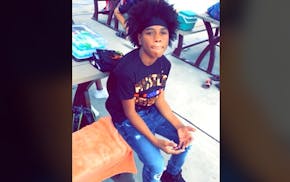
Medcalf: This summer, let's all be more vigilant about our children — and everyone else's
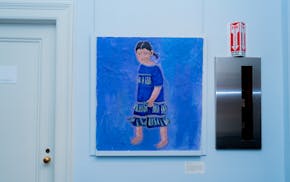
Medcalf: Mia program provides safe space for young people to create

Medcalf: George Floyd's daughter, now 11, on life without her dad: 'It's hard'
